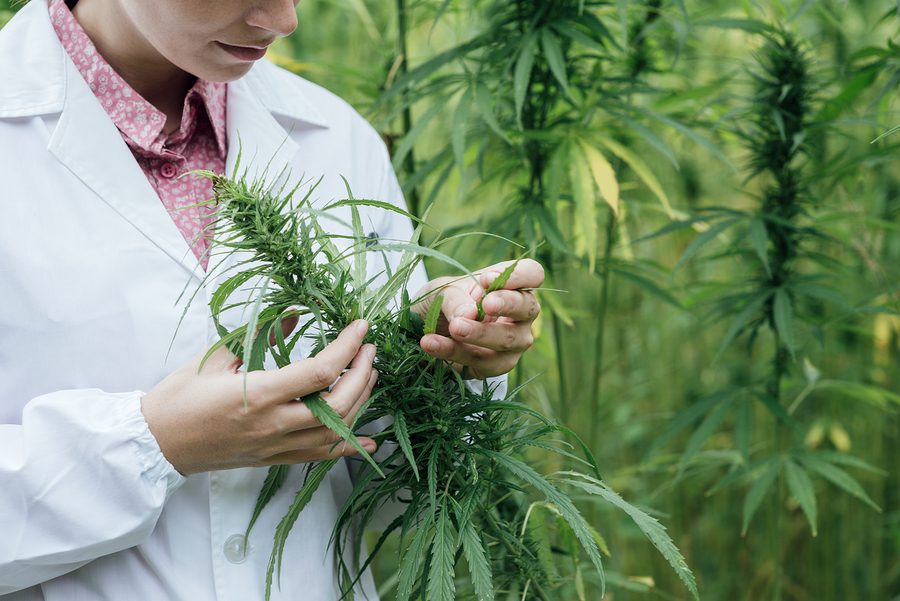DOJ Memo says Trump Admin may permit research into cannabis products
Congress is being prompted to take administrative action and broaden its research into cannabis’ therapeutic effects. The case has emerged following a “secret” Justice Department document that was forcefully released by a scientist who goes by the name of Sue Sisley.
Sisley – in addition to many other scientists who have been anxiously waiting for a green light to start cultivating research-grade cannabis – is fighting on behalf of the Scottsdale Research Institute (SRI). Since 1968, scientists involved in cannabis research have had no choice but to obtain poor-quality plants from the University of Mississippi’s 12-acre farm.
According to the attorneys providing representation for the SRI, the Department of Justice (DOJ) must waive specific requirements that will enable additional researchers to start growing cannabis for study purposes; registration will not be necessary as per the proposed regulations.
“Boiled down, the fact that a secret re-interpretation of an international treaty from 1961 has blocked the advancement of [cannabis] science in this country for the past three years is absurd,” the SRI wrote in a statement. “Allowing American scientists to cultivate or acquire [cannabis] grown in this country under strict DEA regulation and supervision is pro-science, pro-veteran, and pro-law enforcement. It puts America First and promotes public health and safety.”
Trump administration urged to license new cultivators without violating international drug treaties
SRI’s legal representatives want lawmakers to give the Trump administration a nudge that will prompt the waiving of cannabis license registration requirements. The administration is feeling the pressure, following the recent release of an important document by the Justice Department’s Office of Legal Counsel (OLC).
A memo published by the OLC outlined the details of a memo that was wrongly used by the Drug Enforcement Administration (DEA) as justification for hindering the cannabis research license approval process. Without the SRI’s legal filing of a Freedom of Information Act lawsuit in April, the flaws contained in the recently released document wouldn’t haven’t been exposed. Federal officials, the lawsuit alleged, have been violating international drug treaties.
According to attorneys representing the Institute, the published document highlights the masked secrets of the DEA; unearthing their deceitful efforts to delay cannabis research license applications in the United States. Following numerous years of delays and inactivity on the DEA’s part – the Agency promised to start reviewing and accepting new applications back in 2016 – not much progress has been made.
Luckily, the ball is rolling, thanks to the SRI’s letter to Congressional members. With their evidence, the Institute affirms that it has sufficient evidence to hold the DEA accountable for violating international drug treaties and should therefore feel obliged to waive registration requirements. If this happens – in spite of the social “lockdown” that has forced the cannabis industry to evolve in many U.S. states – research institutes will be able to start cultivating their own plants for the sole purpose of scientific research.
Furthermore, the DOJ memo highlights how President Donald Trump may sway Congress’ decision in allowing non-registered researchers to get their hands on cannabis-based products from state-licensed dispensaries; the SRI affirms that this method would slash the time it takes for scientists to gain licensing.
“That Congress can fix these issues with legislation goes without saying. But what fewer recognize is that this Administration can cut through the regulatory red-tape right now,” wrote Sisley and her team of lawyers in their lawsuit regarding cannabis research applications. “DEA could, for example, exempt licensed Schedule I [cannabis] researchers from having to obtain a separate registration to manufacture marijuana, provided those researchers agree not to distribute any marijuana they manufacture. Alternatively, it could permit licensed Schedule I [cannabis] researchers to obtain [cannabis] from state-legal dispensaries. The executive’s authority to grant waivers under [federal code] is broad.”
OLC document outlines reasons why cannabis research licenses have been delayed by DEA
Aside from the SRI – which has been one of the most widely covered institutes in the nation regarding the delay in the DEA’s approval of cannabis research institutes – dozens of other applicants are waiting on the sidelines for a judgement. Until they receive confirmation, they lack the legal power to become federally-authorized cannabis cultivators for research purposes.
The release of the document has sent a ripple effect of frustration, confusion and inconvenience among the cannabis research community. However, it has also clarified the true reasons behind the DEA’s approval of cannabis research institutes. Written in 2018, the long-awaited public release of the OLC memo suggests that the Agency was in violation of its 2016 license expansion announcement. During this tedious time of uncertainty, the agency knew why applicants were being left in the dark, but made no effort to enlighten them.
“In the United States, doing robust clinical research with [cannabis] should not be so difficult,” reads an excerpt from the letter from SRI to the House and Senate. “Scores of Americans rely on medical [cannabis] to treat a variety of symptoms, including our nation’s veterans and terminally ill. Not surprisingly, this issue has solid bipartisan support. It also has support among federal agencies including FDA, NIH, and DEA itself.”
SRI proposal to allow cannabis research licenses could struggle
Although the proposed changes would help to resolve a range of roadblocks and issues highlighted in the OLC memo – such as the DEA becoming the sole agency responsible for purchasing and possessing cannabis for research purposes in the U.S. – not everybody is convinced. Acclaimed attorneys Matt Zorn and Shane Pennington pinned a federal statute as an opportunity for the Justice Department to skirt around the new rulemaking process; a loophole that could result in the Department one-sidedly relinquishing any updated requirements and, instead, establishing its own regulations to remain compliant with international treaties.
“The Attorney General may, by regulation, waive the requirement for registration of certain manufacturers, distributors, or dispensers if he finds it consistent with the public health and safety,” wrote the attorneys in their letter. “Plainly, given the undisputed urgency of the need for this research, waiving certain registration requirements to allow already-licensed Schedule I researchers obtain marijuana from real world or alternative sources would be ‘consistent with the public health and safety.”
International drug treaties are to remain in effect, if Congress takes action on cannabis research license approvals. According to a statute cited by the SRI, the attorney general could essentially enact any regulations he deems necessary for compliance. The Institute is eager to become one of the leading approved cannabis manufacturers for the supply of research studies into the plant’s therapeutic qualities for various disorders; primarily post-traumatic stress disorder (PTSD).













